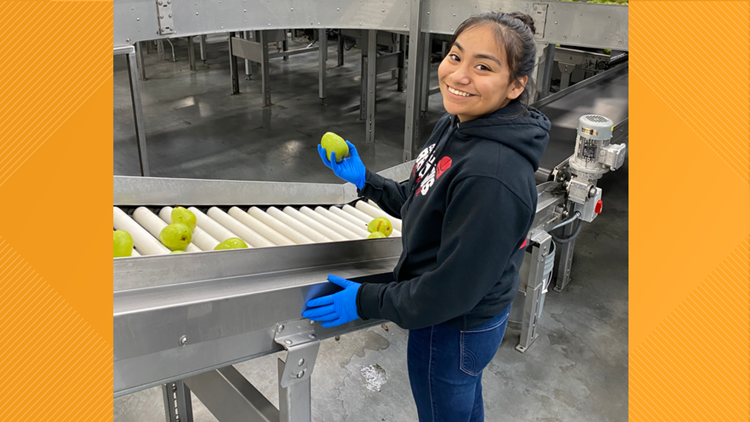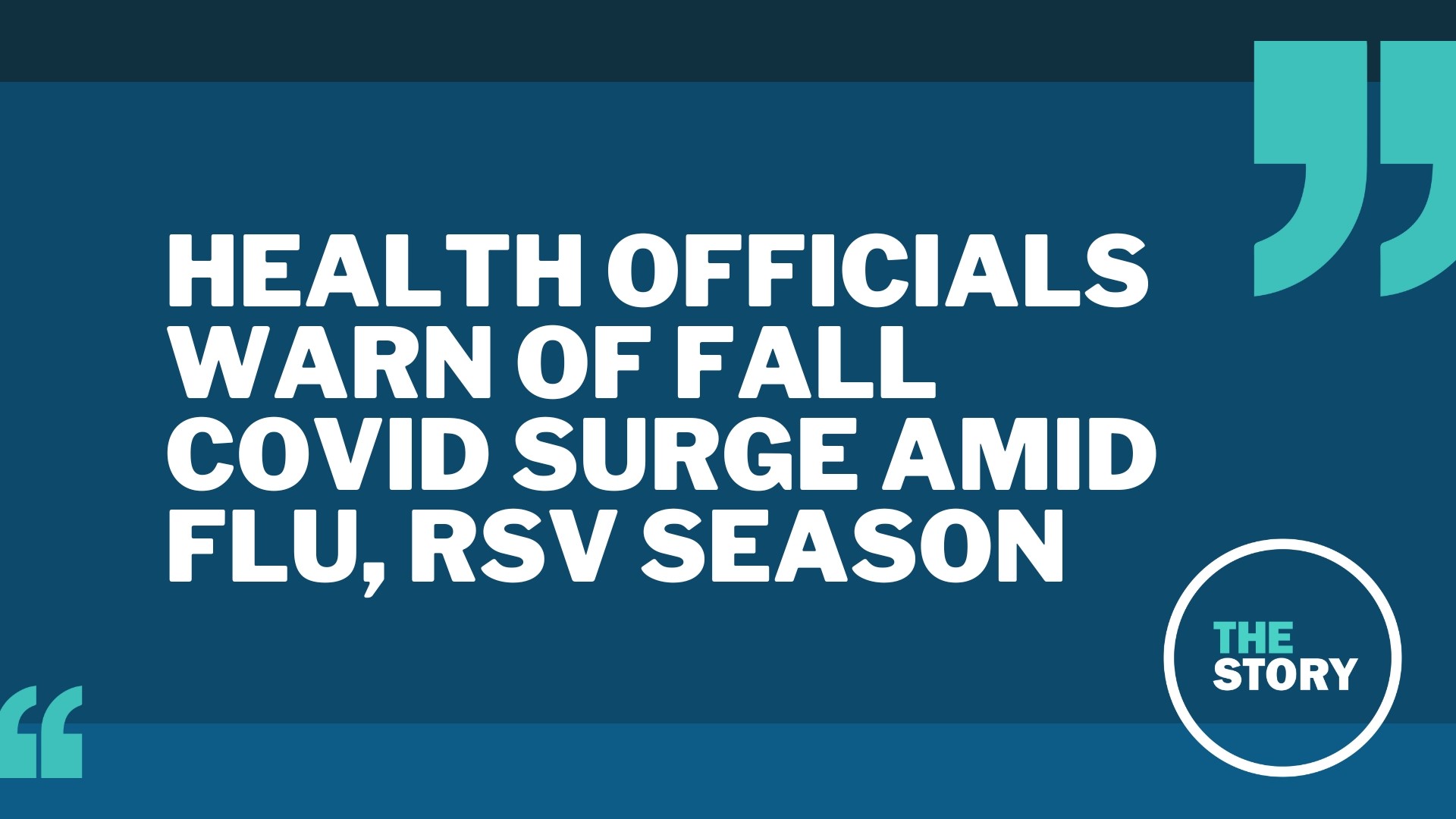HOOD RIVER, Ore. — The pear season was well underway in the Hood River valley when the coronavirus pandemic hit Oregon and Washington.
“The initial impact was fear and uncertainty,” said Doug Gibson vice president of Mount Adams Fruit, a family-owned packing and shipping operation that began in 1917.
The company in Bingen, Wash., just across the Hood River Bridge, has 350 employees and ships pears, cherries and apples across the United States and the world.
Management wasn’t sure how the coronavirus would affect the company. The initial outlook was good as orders soared with grocery stores rushing to stock up on pears, and business has remained steady with consumers continuing to want fruit.
Then schools closed and people in high-risk categories were advised to stay home. Having enough workers at the plant was critical for area farmers. If their products aren’t shipped, they don’t make money on their crops.
“We encouraged all employees in the risk category to stay home,” said Gibson. “We let them know the company would take care of them going forward as we figured it out ourselves.”
Other employees could work, but many of them worried about leaving their children home alone all day.
In the meantime, the plant needed to be constantly disinfected and run at capacity.
To build up its workforce, the company applied to Washington state for minor work permits, required by law because the plant is considered a factory. Once approved, the company offered to hire high school kids from families who worked at the plant. They could have hired students as young as 15, but thought it best each student be at least 16.
RELATED: Decades-old Oregon dental supply company A-dec starts producing face shields amid PPE shortage
“Let’s say a grandmother worked as a sorter and was in the risk category and stayed home,” said Gibson. “Her grandson could come in and work for her, getting paid exactly what she earned. The family would not take a financial hit. Parents could also have their children come to work so they weren’t home alone.”
Gibson said 32 minors now work at the plant.
“The first thing we did was structure everything to be an educational experience,” he said.
He said the young workers are learning about quality control, sorting, cleaning and safety and communicating directly with growers.
“We want to help them understand what the fruit industry is all about,” he said. “This isn’t just a factory.”
Growers normally come into the plant to watch their fruit be graded, sorted and packed. But the company is now restricting access.
“We have some of the kids going around, taking videos of fruit when it is delivered,” Gibson said. “A grower can literally see their fruit go through the packing line.”
Gibson said the young workers easily picked up the new technology.
Dorothy Carrillo, a 17-year-old senior at Columbia High School in White Salmon, is a sorter and one of the videographers. She takes pride in showing growers how their pears are being graded for the market.
Her school’s student body president, Carrillo plans to use the money she’s making to help pay for college next year. She is not yet sure where she will go, but her long-range goal is to be an agricultural teacher.
“I’m getting real-life experience here that will help me,” she said.
Almost as important, she said, is talking with older workers, learning about their lives and dreams.
“I’m having fun,” she said, “fun while I am working.”
The company turned a room into a study hall, Gibson said, where students can take time during the day for online high school instruction.
Gibson said the company increased space in the lunchroom to make sure everyone sits 6 feet from each other and built barricades in all production areas to allow social distancing. All public areas are cleaned multiple times a day. He said no one has come down with coronavirus. Employees who do feel sick, receive sick leave and must be checked at a clinic before getting permission to return to work.
“It’s a workday for these kids,” said Gibson. “But we’re mindful they’re kids who would normally be in school. They are getting paid for a full work week, but they are studying and doing other things too. When this virus ends, we want these students to come way saying they not only made money, but they learned something.”
Leonel Orozco, a 16-year-old junior at Columbia High School, has worked several jobs at the plant. With school expected to be out the rest of academic year, he figures he will keep working at the plant.
He said it was strange, those first few days, to be working and seeing his parents.
There was a little too much closeness.
“But I enjoy it now,” he said. “I feel everyone’s looking out for us kids.”
--Tom Hallman Jr; thallman@oregonian.com; 503-221-8224; @thallmanjr
This article was originally published by The Oregonian/OregonLive, one of more than a dozen news organizations throughout the state sharing their coverage of the novel coronavirus outbreak to help inform Oregonians about this evolving health issue.



